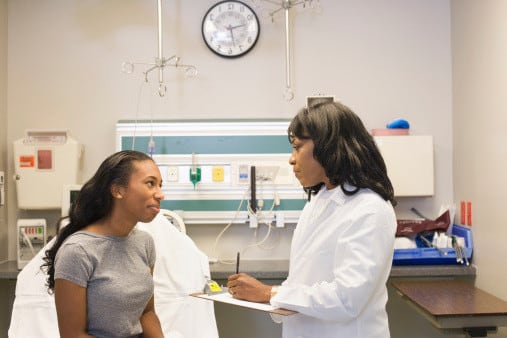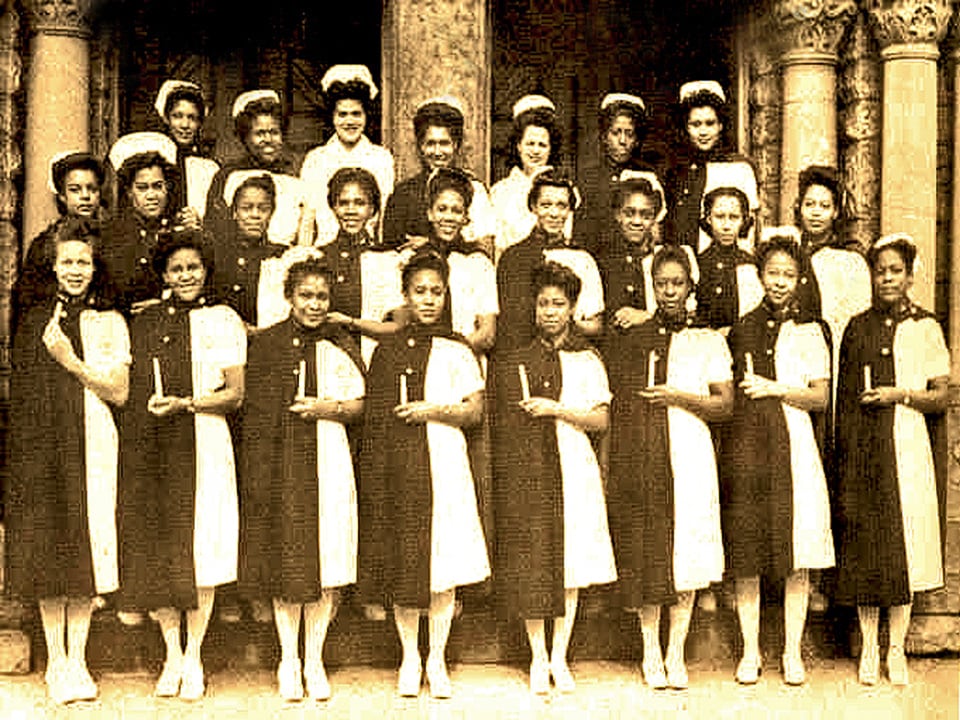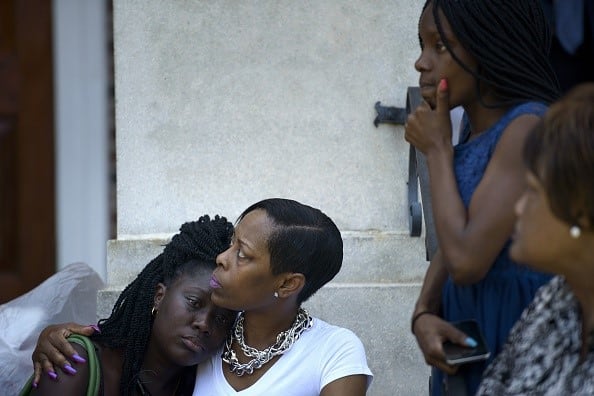—
It took pneumonia for Oprah Winfrey to put on the brakes and change the way she looks at wellness.
Like many of us — maybe more than most of us — Oprah is like the Energizer Bunny. She admits that she never stops. Not even when she’s sick.
But then the “little rattling” in her chest turned out to be pneumonia.
“I thought I had a cold — but it wasn’t a cold,” she said on “The Ellen DeGeneres Show” a day after she was cleared. “I ended up in the emergency room and they said, ‘You have pneumonia.’”
“I was on antibiotics for a week and the antibiotics weren’t working,” she continued. “And then I go back for another CT scan and they go, ‘It’s actually worse. You should see a lung specialist.'”
As the specialist examines her with a stethoscope, “I see the ‘Oh, shit’ face. It is like, ‘Oh my God, something’s wrong with you.’” The doctor grounded her from flying for a month and asked her to cancel everything.
Although she rebounded sooner, she took her illness seriously — with good reason. Pneumonia sends a million people to the hospital each year, and kills 50,000, according to the Centers for Disease Control (CDC).
“Don’t play with it,” Oprah warned DeGeneres’ guests. “Get your flu shots, and get your pneumonia shots. It’s nothing to play with. It takes people out.”
Do You Have Pneumonia?
Pneumonia is an infection that inflames your lungs’ air sacs (alveoli), according the American Lung Association. The air sacs may fill up with fluid or pus, causing symptoms such as a cough, fever, chills and trouble breathing.
Symptoms can vary from so mild you barely notice them, to so severe that hospitalization is required. How your body responds to pneumonia depends on the type germ causing the infection, your age and your overall health.
The signs and symptoms of pneumonia may include:
- Cough, which may produce greenish, yellow or even bloody mucus
- Fever, sweating and shaking chills
- Shortness of breath
- Rapid, shallow breathing
- Sharp or stabbing chest pain that worsens when breathing deeply or cough
- Loss of appetite, low energy, and fatigue
- Nausea and vomiting, especially in small children
- Confusion, especially in older people

5 Questions to Ask Your Doctor
- Am I at risk for pneumonia?
Anyone can get pneumonia, but some people are at a higher risk than others. Talk with your doctor to determine if you are at high risk. - What vaccines should I get?
Pneumonia can be prevented. Get a flu shot every year to prevent seasonal influenza. The flu is a common cause of pneumonia, so preventing the flu is a good way to prevent pneumonia. Get vaccinated against pneumococcal pneumonia, the most common form of bacterial pneumonia, if you are at high risk of getting this type of pneumonia. Pneumococcal pneumonia vaccine is recommended for all children under the age of 5 and for adults with specific risk factors. Work with your doctor to determine if you should get the pneumonia vaccine. - What are the symptoms of pneumonia?
Symptoms of pneumonia may vary but the most common are cough (with some pneumonias you may cough up greenish or yellow mucus, or even bloody mucus), fever, chills and shortness of breath. If you are concerned you might have pneumonia, call your doctor immediately. - What are the different types of pneumonia?
There are several different types of pneumonia including bacterial, viral, mycoplasma and others. (Also, see below.) The type of pneumonia you have determine how it is treated. If you are diagnosed with pneumonia, ask your doctor what kind you have and what treatment is recommended. - What else can I do to keep my lungs healthy?
Good health habits can help prevent pneumonia and other lung diseases. Practice good oral hygiene and hand washing. If you are at higher risk for pneumonia Avoid crowds, people who are ill and exposure to lung irritants like cigarette smoke and air pollution.
When to call a doctor
If you think you or your child has symptoms of pneumonia, don’t wait for the disease to get even worse before you seek care. Call your doctor. And see your doctor right away if you have difficulty breathing, develop a bluish color in your lips and fingertips, have chest pain, a high fever, or a cough with mucus that is severe or is getting worse.
It’s especially important to get medical attention for pneumonia if you are in a high-risk group, including adults older than age 65, children age two or younger, people with an underlying health condition or weakened immune system. For some of these vulnerable individuals, pneumonia can quickly become a life-threatening condition.
Differences by Age
Sometimes pneumonia can be difficult to diagnose because the symptoms are so variable, and are often very similar to those seen in a cold or influenza. To diagnose pneumonia, and to try to identify the germ that is causing the illness, your doctor will ask questions about your medical history, do a physical exam and run some tests.
Symptoms may vary in certain populations. Newborns and infants may not show any signs of the infection. Or, they may vomit, have a fever and cough, or appear restless, sick, or tired and without energy.
Older adults and people who have serious illnesses or weak immune systems may have fewer and milder symptoms. They may even have a lower than normal temperature. Older adults who have pneumonia sometimes have sudden changes in mental awareness. For individuals that already have a chronic lung disease, those symptoms may worsen.
Types of Pneumonia
Bacterial pneumonia — This is the most common form and tends to be more serious than other types of pneumonia, with symptoms that require medical care. The symptoms of bacterial pneumonia can develop gradually or suddenly. Fever may rise as high as a dangerous 105 degrees F, with profuse sweating and rapidly increased breathing and pulse rate. Lips and nailbeds may have a bluish color due to lack of oxygen in the blood. A patient’s mental state may be confused or delirious.
Viral pneumonia — The symptoms usually develop over a period of several days. Early symptoms are similar to influenza symptoms: fever, a dry cough, headache, muscle pain, and weakness. Within a day or two, the symptoms typically get worse, with increasing cough, shortness of breath and muscle pain. There may be a high fever and there may be blueness of the lips.
Click here to learn more about common causes of pneumonia.
%
Of invasive pneumococcal disease strikes adults
Free Feedback
The American Lung Association offers a free Lung HelpLine with experts available by phone, web chat or email.









